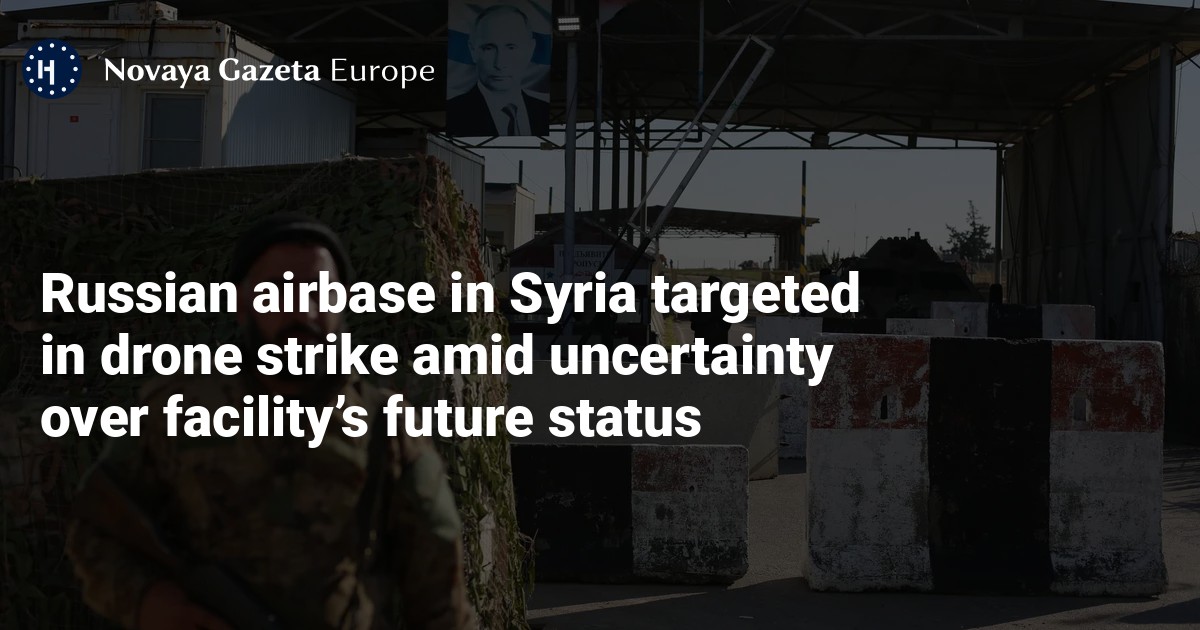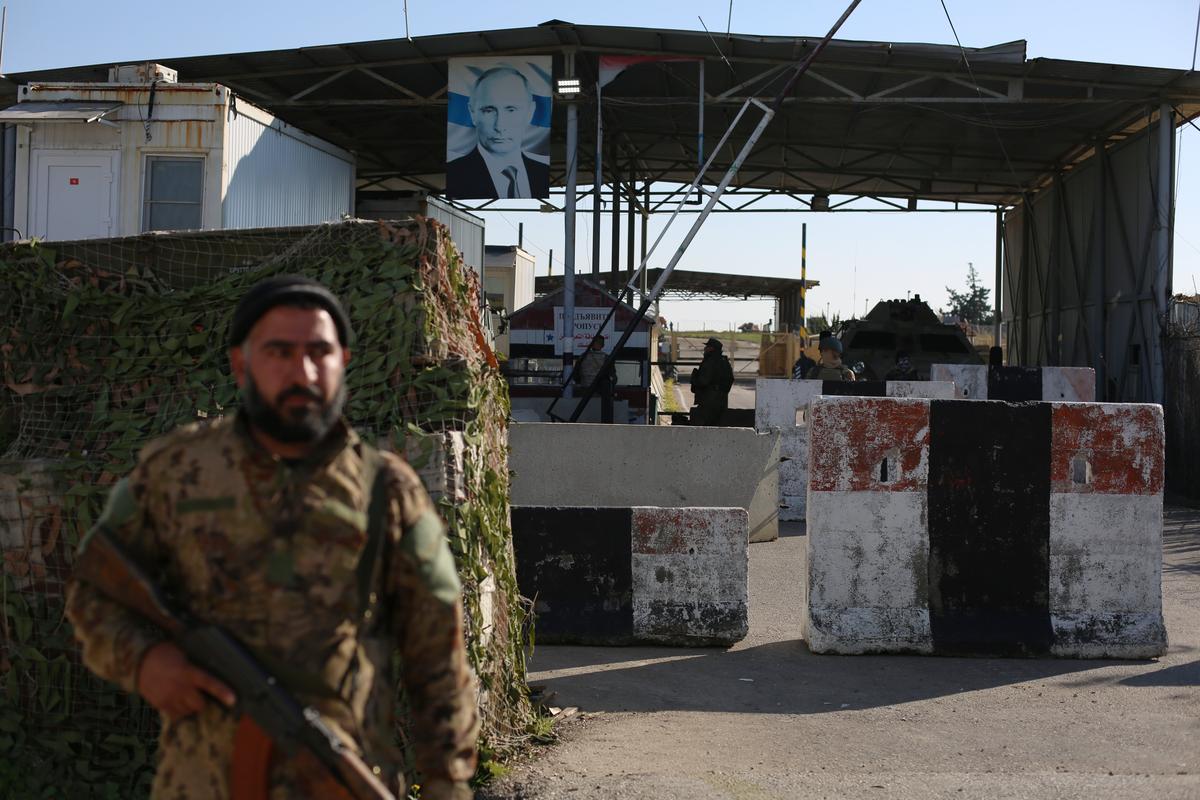




A Syrian opposition fighter guards the main entrance of Russia’s Hmeimim military base near the city of Latakia, western Syria, 2 January 2025. Photo: EPA-EFE / BILAL AL HAMMOUD
Russia’s Hmeimim airbase in northwestern Syria was attacked by drones in the early hours of Tuesday morning, according to reports by Syrian Telegram channel Sabereen News and open source intelligence monitor SyrianOSINT.
While the provenance of the drones wasn’t immediately clear, pro-Russian military blogger Oleg Blokhin speculated that Islamist militant group Hayat Tahrir al-Sham (HTS) was responsible for the attack, which he said proved that Russian bases in Syria were at risk of “shelling, drone raids, or an assault every day” and would “not be allowed to function normally”.
Russia currently operates two military bases in Syria; the Hmeimim airbase, near the Syrian port of Latakia, and a naval base in Tartus, further south.
Since the fall of the Assad regime in December, however, the future of both bases has been uncertain. While Russian Deputy Foreign Minister Mikhail Bogdanov said in December that Russia expected to retain control of both bases, on 22 January Syria terminated an agreement with the Russian company responsible for managing the port and naval base at Tartus.
Syria’s transitional government then announced that it would allow Russia to maintain its military bases in Syria in exchange for the extradition of ousted former President Bashar al-Assad, who fled to Russia as his regime collapsed where he was granted asylum. The proposal was rejected by the Kremlin.
In a phone call with Syria’s interim president and leader of HTS, Ahmed al-Sharaa, on 12 February, Vladimir Putin proposed instead that Russia could “contribute to improving Syria’s socioeconomic situation” and provide humanitarian assistance to the country.
Syrian media outlets later reported that a plane had flown from Russia to Damascus to deliver some €4.4 billion in cash, a claim that was confirmed by the Central Bank of Syria.
